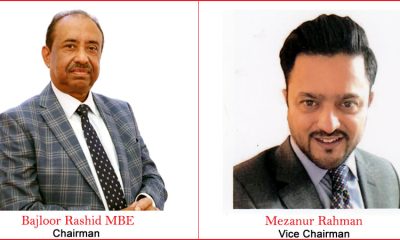Tech
CIAT Reveals Key Technology Advantages of Taiwan’s Server Industry
Published
2 years agoon

Cloud Computing and IoT Association in Taiwan (CIAT) held its annual general membership meeting today (Dec. 8). In addition to inviting Vice Premier Cheng Wen-Tsan to present the “2023 Cloud Computing & IoT Innovation Award” and the “11th CIAT Acceleration Program Award”, CIAT also invited Kung Ming-Hsin, Minister of National Development Council, Lin Jyun-Siou, Deputy Director General of Administration for Digital Industry, Chen Mi-Shun, Deputy Director General of Small and Medium Enterprise and Startup Administration to attend the meeting with nearly 300 industrialists. In response to the global technology industry’s trend, “Everything of AI,” the demand for AI servers and AI chips is rising simultaneously. CIAT specially invited heavyweight lecturer Kung Hsiang-Tsung, who is the Willian H. Gates Professor at Harvard University, an Academician of Academia Sinica, and Principal of Taiwan AI Academy, to share his experience on “Distributed Computing for AI”, exploring the technological edges that Taiwan’s server industry can enter.
TrendForce estimates that AI server shipment will reach 1.2 million units in 2023, an annual increase of 38.4%, accounting for nearly 9% of the overall server shipment, and will account for 15% in 2026, simultaneously upwardly revised the 2022~2026 compounded annual growth rate of AI server shipments of 29%. Lee Chih-Kung, Chairman of CIAT and also Chairman of the Industrial Technology Research Institute (ITRI) and Institute of Information Industry (III), indicated that the most significant breakthrough in the technology industry in the past year was the introduction of the generative AI ChatGPT, which has been visited by more than 1.7 billion users globally, and that Taiwan’s industry should seize the business opportunity and quickly enter the high-end AI server market. Another major trend that deserves attention is that the communications era is moving from 5G to 6G to optical communications, which will provide high-speed network connectivity, high-capacity, low-latency, and low-power broadband communications that can meet the demand from the infrastructure. Two years ago, CIAT joined the Innovative Optical and Wireless Network (IOWN) International Forum, which was formed by NTT, Intel, SONY, and others to promote Taiwan’s industrial sector to grasp the innovative telecommunication technology of all-optical network as early as possible. In addition, CIAT also actively bridges with international communities to help its members develop business opportunities. In the field of ORAN, CIAT leads its member companies to visit NTT East Local 5G Lab. in Japan to get public network business opportunities in addition to linking 5G private networks. Regarding Massive IoT, CIAT links the Japan AHPC Promotion Council to introduce Japan’s new Wi-Fi technology, which has a transmission distance of up to one kilometer. In the field of future satellite space, CIAT invited 16 international space companies, including India and the Czech Republic, to come to Taiwan to look for business opportunities with Taiwan’s industry, accelerating Taiwan’s space manufacturers’ entry into the international space industry chain, and fully realizing the industrial vision of “From the Cloud, into the Universe, and the Space.”
The “Taiwan Cloud Computing and IoT Forum” held in the afternoon continued the theme forum in the morning session. In response to the future AI era of significant computing power demand for complex data, multi-node, ultra-high-speed, low-power consumption distributed cloud computing with AI servers will give rise to a comprehensive range of innovative applications of the IoT. For O-RAN issues, the Association assisted in promoting the industry’s development. Also, it aligned itself with the international community by inviting Sadayuki Abeta, the Vice President of Japan NTT DOCOMO, to share his practical experience in creating a global O-RAN ecosystem and meeting the needs for customer service. Chen Wei-Chao, Digital Director and Senior Vice President of Inventec; Wu Han-Chang, General Manager of ASUS Cloud and Taiwan Web Service, Supervisor of CIAT; Lee Rong-Ruey, Director of the Broadband Network Research Institute of the Chunghwa Telecom Laboratories; and Chang Chee-Wei Chang, Distinguished Professor of National Central University and Consultant of the CIAT Satellite IoT SIG, shared the viewpoints of domestic and foreign experts on issues of generative AI, enterprise innovation, all-optical network, satellite technology, etc., and concluded that the future technological development would be based on “Distributed Artificial Intelligence,” focusing on applications such as intelligent manufacturing, smart agriculture, satellite image recognition, environment sensing, and smart city, etc.
In the “Cloud Computing & IoT Innovation Award,” a major annual industry-government-research collaboration event of governmental organizations, this year, three governmental organizations were awarded the Outstanding Application Award, namely, the “One-Finger Inquiry for Real Estate Information” by the Land Administration Bureau of Taichung City Government in conjunction with Systex Corporation, the “New Taipei City Emergency Management Information System” by Fire Department, New Taipei City Government in conjunction with Taiwan Research Institute and the “Three-Dimensional Alert Display System for Flash Flood Hot Spots in Mountainous Areas” by National Science and Technology Center for Disaster Reduction in conjunction with Global Power Technology. The “CIAT Accelerator Program in Taiwan” created by CIAT and StarFab Accelerator is entering its 11th year this year, has assisted 168 start-ups and large corporations in co-creative cooperation, and has made a fruitful achievement of accumulative fund-raising of more than NT$3.9 billion in the past 11 years. The eight corporate mentors of the CIAT Accelerator Program include Far EasTone, NVIDIA, Hwacom, Syscom System, Inventec, Delta Electronics, Chunghwa Telecom, and Industrial Technology Research Institute. In the end, “Moldintel” and its corporate mentor “Delta Electronics” won the first place of the System Innovation Award, “Choozmo” and its corporate mentor “NVIDIA” won the second place of the System Innovation Award, and “Clarity Wind” and its corporate mentor “Syscom System” won the third place of the System Innovation Award. In recent years, StarFab has also established the “Tech-Startup Japan Award” specifically for Japanese market expansion. This year, CIAT Accelerator also combined the results of creative cooperation between 8 CIAT mentors and 10 startups to obtain the intention of a 50-million investment.
The most influential and award-winning tech journalist based in Dhaka, Bangladesh. President of Bangladesh Tech Journalists umbrella association name Bangladesh ICT Journalist Forum(BIJF).He works for The Daily Ittefaq and is responsible for covering news, editing posts, reviewing devices, producing video reviews, and communicating with the reader base. Journalist, editor, technology, personal technology, reviews, features, analysis, media.

You may like
-
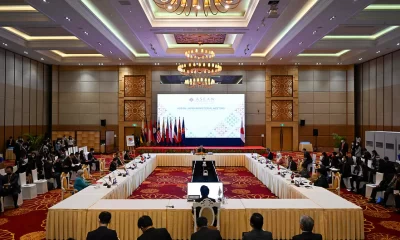

ASEAN ministers warn Taiwan tensions could spark ‘open conflicts’
-


Pelosi to visit Taiwan despite China warning military action
-
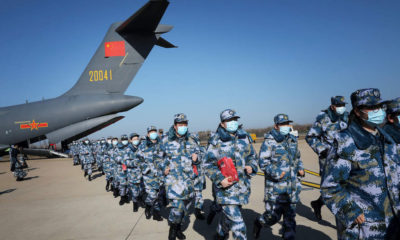

Taiwan reports new large-scale Chinese air force incursion
-
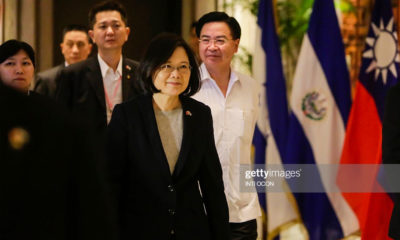

Nicaragua breaks diplomatic relations with Taiwan
-


With all eyes on Taiwan, tensions are building on another Chinese frontier: India
Tech
A10 Networks Expands its Cybersecurity Portfolio with Acquisition of ThreatX Protect
Published
4 months agoon
March 13, 2025
ThreatX Protect Addresses Critical Need to Protect Against Evolving Application and API Security Threats
To continue to help customers address the rapidly evolving cyber threat landscape, A10 Networks has acquired the assets and key personnel of ThreatX Protect expanding its cybersecurity portfolio with web application and API protection (WAAP). The acquisition is expected to be modestly accretive to A10’s earnings per share in 2025 and has closed.
Attacks against web applications and application programming interfaces (APIs) are on the rise and are a significant threat to enterprises. ThreatX Protect provides a unique WAAP solution using behavioral and risk profiling to help protect enterprises from evolving threats, including threats to AI applications, which can complement an AI firewall. Delivered as a software-as-a service solution, ThreatX Protect includes API protection, bot management and next-generation web application firewall.
“Expanding the A10 Defend security portfolio with ThreatX Protect gives our customers an additional tool in their strategy to protect against new and evolving threats,” said Dhrupad Trivedi, president and CEO, A10 Networks. “Our strategic focus is on helping enterprises secure their applications and networks from the growing number of threats today, as well as protecting the emerging AI use cases of the future. Adding WAAP to our solution set gives customers additional capabilities to help establish a strong security posture.”
“We are thrilled that A10 Networks has acquired certain assets of ThreatX, including the brand and the TX Protect WAAP solution to expand A10’s security portfolio,” said Gene Fay, CEO of ThreatX. “A10 has been a fantastic partner throughout this process, and we are confident that our customers and employees will thrive under their leadership.”
As a result of this transition, the remaining assets of ThreatX will be launched as Run Security with TX Prevent, the cutting-edge eBPF-based solution re-launched as RS Prevent.
ThreatX Protect supports A10’s strategy of helping customers deploy A10 security solutions in a hybrid approach to protect apps and APIs running anywhere – public cloud, private cloud, co- location facilities or on-premises. The A10 Defend portfolio of solutions provides DDoS protection, DDoS threat intelligence and web application, and now adds a full-featured WAAP solution all integrated into a single platform with end-to-end delivery and stronger security for mission-critical applications.
Specific terms of the transaction were not disclosed. The acquisition is consistent with A10’s stated strategy of expanding the Company’s security portfolio to grow in the enterprise market. The acquisition does not represent a material change to the Company’s 2025 financial outlook or long-term business model.
Tech
Rampant Corruption Plagues ICT Sector in 15 years : White Paper
Published
7 months agoon
December 3, 2024
Highlights
- ICT sector plagued by corruption
- Hi-Tech parks fail to attract investors
- Lack of transparency in project implementation
- Misuse of funds to benefit preferred vendors
- Calls for robust project evaluations
The White Paper on the State of the Bangladesh Economy, submitted to the Chief Adviser today (1 December), identified the Information and Communication Technology (ICT) sector as one of the most affected by corruption.
“The review of the White Paper puts the banking sector on top of the most corruption-ravaged sectors, followed by physical infrastructure, and energy and power,” it reads.
ICT was also identified as one of the most corruption-affected sectors by its operational and technological novelty, it added.
The White Paper committee’s comment highlights years-long corruption allegations in the key sector the Awami League pledged to improve during the 2008 election for the sake of national progress.
And the story later frustrated the youth and technology experts due to huge waste of taxpayers’ money in improper projects. These lacked transparencies and were alleged to benefit people close to the then regime.
In the one and half decades of Sheikh Hasina’s ruling, the state spent nearly Tk29,000 crore to build “Digital Bangladesh” and later “Smart Bangladesh by 2041.”
Most of the funds were allocated to infrastructure projects, which still require justification from sector experts. For instance, Hi Tech parks outside major cities barely attracted investors.
Government-funded projects aimed at youth ICT training, women empowerment, and local app and game development, costing hundreds of crores of Taka, appear to have primarily benefited officials and their preferred vendors, reveals the gradually unfolding facts.
The interim government in August formed a committee to evaluate the ongoing projects already recommended to downsize them in lots of unjustified cases. It will also dig deeper to find the anomalies in the already finished projects.
In an example of how the government projects were being justified in questioned ways, the white paper mentioned a 2013-18 ICT Division project “Leveraging ICT for Growth, Employment, and Governance Projects” that had a 43% cost increase to Tk774 crore, from its original budget of Tk521.97 crore.
According to the White Paper, the large capacity-building initiative aimed to promote the IT sector and train 30,000 individuals for employment within it. The evaluation report from the Planning Ministry’s Implementation Monitoring and Evaluation Division showed strong satisfaction with the project’s success.
However, it overlooked the contributions of training institutions, colleges, and universities that also played a role in advancing the sector, the White Paper stated.
Additionally, the quality of the evaluation report was inadequate, as it failed to distinguish the marginal impacts of training 30,000 individuals on the entire IT sector.
This analytical weakness in assessing the project’s impacts has contributed to the continuation of various ICT and other projects that lack tangible benefits.
“It highlights the need for more robust evaluations to ensure that future initiatives are grounded in a clear understanding of their actual contributions to the sector,” said the White Paper.
Bangladesh lags behind many comparator countries in a number of technological indexes, despite the digital and smart nation narratives.
Tech
Corruption behind Tk 650bn investment in telecom, ICT sectors
Published
7 months agoon
December 3, 2024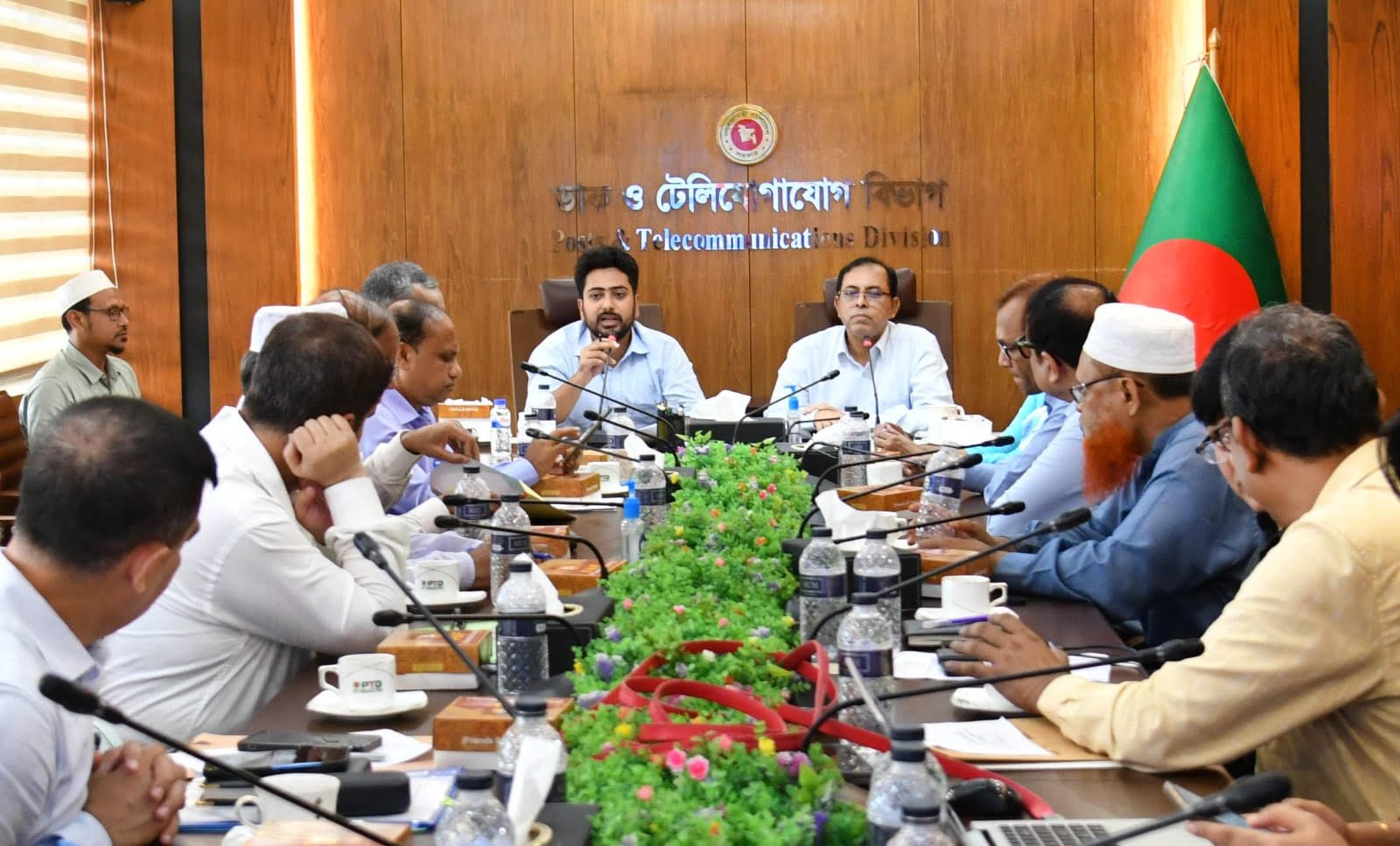
ICT Advisor Nahid Islam has said due to ‘irregularities’, Bangladesh has not realised the full benefits of the ‘Digital Bangladesh’ initiative despite a substantial investment of Tk 650 billion in the telecommunications and ICT sectors under the Awami League government.
Speaking at an ADP review meeting at the Posts and Telecommunication Division on Monday, Nahid criticised the execution of numerous costly projects under the ‘Digital Bangladesh’ banner which, according to him, failed to deliver their promised impact.
From fiscal year 2010-11 to 2024-25, the ICT Division implemented projects worth Tk 250 billion, while the Posts and Telecommunications Division accounted for projects totaling Tk 400 billion.
Despite these investments, Bangladesh scored a modest 62 out of 100 in the June 2024 edition of the ICT Development Index by the United Nations International Telecommunication Union, trailing behind nations such as Myanmar, Sri Lanka, the Maldives, Vietnam, and Bhutan.
Highlighting the country’s technological lag, Nahid referenced the May 2024 Ookla Speedtest Global Index, where Bangladesh ranked 109th out of 147 countries in internet speed, below Kenya.
Also, Bangladesh placed 108th in broadband internet performance, with India, Sri Lanka, Bhutan, Rwanda, and Ghana all performing better.
In the realm of artificial intelligence, the IMF’s June 2024 Artificial Intelligence Preparedness Index placed Bangladesh 113th, again behind India, Sri Lanka, Bhutan, Rwanda, and Ghana.
The Digital Quality of Life Index 2023 by cybersecurity firm Surfshark saw Bangladesh drop five notches to 82nd among 121 countries, with internet speed 5 percent below the global average.
Rankings in the Key Government Index, e-security, and internet purchasing capacity were similarly below par.
Nahid also pointed out that Bangladesh lags in freelancing, ranked 29th among the top 30 global destinations, as per an April 2024 report by US-based CEOWORLD magazine, trailing behind India and Pakistan.
These indicators, according to Nahid, reflect not just the failure to enjoy the full benefits of digital initiatives but also suggest pervasive irregularities in the sector.
He criticised the frequent delays and the need for repeated extensions in project timelines, calling for more sensible proposals regarding extensions.
Nahid emphasised that timely and proper project completion could significantly propel the nation’s progress in internet and telecommunication sectors, benefitting all Bangladeshis.
The meeting disclosed that nine projects are currently underway within the four offices of the Posts and Telecommunications Division for the fiscal year 2024-25, involving entities such as Bangladesh Telecommunications Company Limited, or BTCL, Teletalk Bangladesh Limited, the Directorate of Posts, and Bangladesh Submarine Cables PLC.
As of August 2024, national-level project progress for the fiscal year was reported at 1.02 percent, with the Posts and Telecommunications Division achieving a progress rate of 3.84 percent.

Bajloor Rashid Elected Chairman, Mezanur Rahman Elected Vice Chairman of Progressive Life Insurance

WB to provide $250m loan to modernise five public sector functions

A10 Networks Expands its Cybersecurity Portfolio with Acquisition of ThreatX Protect










